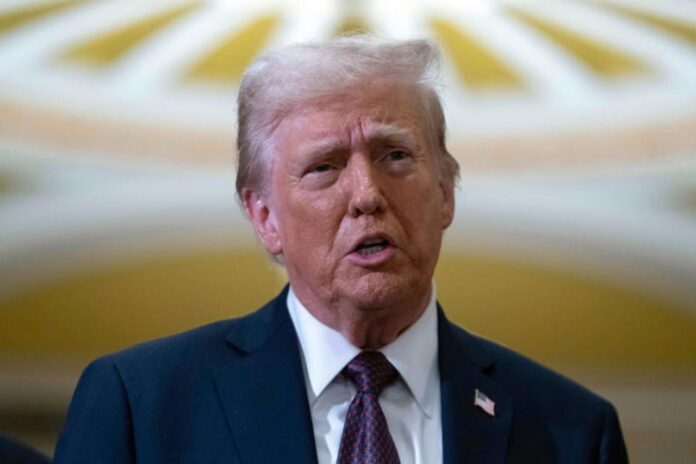In a recent interview, Foreign Secretary David Lammy expressed concerns about the potentially “destabilising” nature of Donald Trump’s rhetoric. This comes after the US president-elect didn’t rule out the possibility of sending American troops to seize Greenland.
But don’t worry just yet – Lammy doesn’t foresee a full-blown conflict between Trump’s America and Europe over Greenland. While the French Foreign Minister was more direct in issuing warnings about any attempts to take control of Greenland, Lammy chose a more diplomatic tone.
The controversy was sparked by a press conference held at Trump’s Mar-a-Lago estate in Florida. During the event, Trump didn’t dismiss the idea of using military force or economic pressure to take Greenland. He also raised eyebrows by suggesting that the US should control the Panama Canal, Canada should join the US, and even that the Gulf of Mexico should be renamed the “Gulf of America.”
Oh, and don’t forget his call for NATO allies to spend 5% of their GDP on defense and threats of new economic tariffs on imports to the US.
When asked about the idea of the US buying Greenland, Lammy told BBC Radio that Trump’s unpredictable rhetoric could sometimes be unsettling, as it was during his first term, especially with NATO. But, Lammy pointed out, in practice, Trump did send more troops to Europe and provided military aid to Ukraine.
On the topic of Greenland, Lammy speculated that Trump’s concerns were more about Russia and China in the Arctic, as well as national security, rather than an actual desire to take control of Greenland. “He knows Greenland is, in fact, part of Denmark,” Lammy added.
Meanwhile, French foreign minister Jean-Noel Barrot made it clear that the European Union would not stand by if anyone tried to infringe on its sovereignty.
Lammy’s comments came ahead of a key meeting between Sir Keir Starmer and French President Emmanuel Macron, where discussions about Trump’s presidency, the Middle East, and Ukraine were expected to be on the agenda.
As for Trump’s call for NATO allies to boost their defense spending to 5% of GDP, Lammy said that the US president-elect would need to outline a clear plan on how he intends to achieve that goal.
Currently, the UK spends 2.3% of its GDP on defense and plans to increase that to 2.5%, while the US spends about 3.4%. Poland leads NATO with the highest spending at 4.12%.
In the end, Lammy suggested that Trump’s defense spending rhetoric is likely fueled by concerns about China, Russia, and North Korea. However, he stressed that Trump would need a clear roadmap if he expects NATO allies to follow suit.





